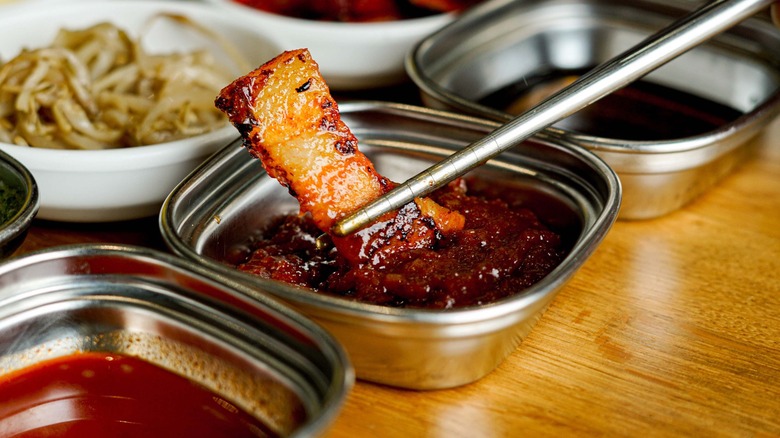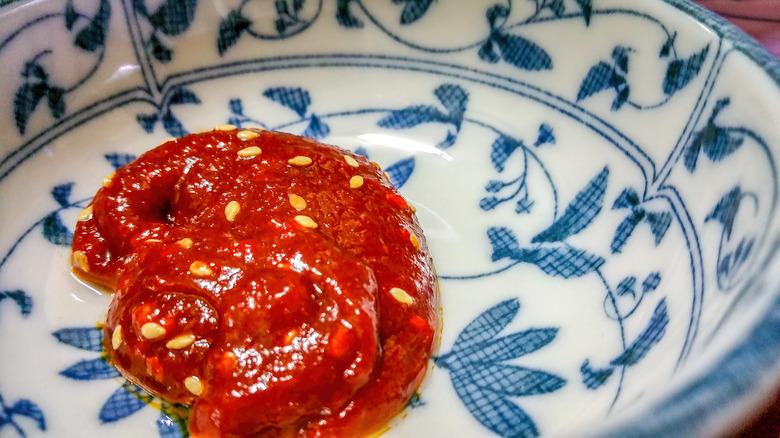2 Dipping Sauces For Better Homemade Korean Barbecue
Few would dispute that having the right meat on hand is key to creating excellent Korean barbecue at home. What may not get as much attention are the dipping sauces. Fortunately, good sauce doesn't always fall into the complicated-culinary-project category. As David Shim, the Executive Chef at COTE Korean Steakhouse and participant in the October 29, 2024, City Harvest BID charity event to promote food security, reminds us that sesame oil, salt, and pepper are all that's needed. As he points out, "This mixture is super easy and works well with both beef and pork. My biggest tip for this recipe is to make sure you're not using too much sesame oil."
Called gireumjang, this simple combo of ingredients routinely makes an appearance on Korean barbecue spreads. When you're making this Korean barbecue sauce at home, you can stick with the three ingredients that Chef Shim recommends. Or if you feel the need to add more flavor to the mix, you might try adding a bit of garlic to it.
While dipping sometimes fatty bits of meat into a sauce that boasts a fatty oil as its primary base might seem counterintuitive, the sesame-based dip boosts the meats' flavor in some key ways. It makes it taste much more savory. For umami fans, this is a definite plus. And it introduces a slightly nutty flavor to the dish, thanks to the sesame oil.
Spicier Korean BBQ sauce options
If you're looking for more of a spicy kick, you have plenty of options. You can start with the base sauce that David Shim recommends, but add some spicier ingredients to it. For example, substituting white pepper for black pepper may bring more of a spicy nip to the recipe without complicating it. Or better yet, introduce some more authentic ingredients and flavors into the recipe. As Shim additionally points out, "Ssamjang is also a must. You can find it at most Asian supermarkets, and can easily add your own flavors."
Made from fermented soybean paste, Korean red chili paste (called gochujang), garlic, a sweetener like honey, and sesame oil and sesame seeds, Ssamjang is spicy in its own right, and the meats that it dresses are often made doubly spicy with the addition of a dollop of the Korean fermented cabbage dish, kimchi, in each bite of barbecue. Additionally, Ssamjang, with its sweet and savory flavor profile, has the potential to bring more complexity to your homemade Korean barbecue sauces. Chef Shim suggests making the sauce "special to you" by adding other spicy ingredients like jalapeño. Your own homemade sauces featuring Ssamjang can include other ingredients such as fermented soybean paste, garlic, sesame oil, soy sauce, and/or ginger, to name but a few.
Finally, it's important to just have a bit of fun while you're concocting dipping sauces for your homemade Korean barbecue. The whole set-up of this style of barbecue embraces fun, from its grill-the-meat-at-your-table tradition to the family-style leanings of the cuisine. In light of that, the sauces you make for your homemade Korean barbecue should reflect this attitude most of all.

